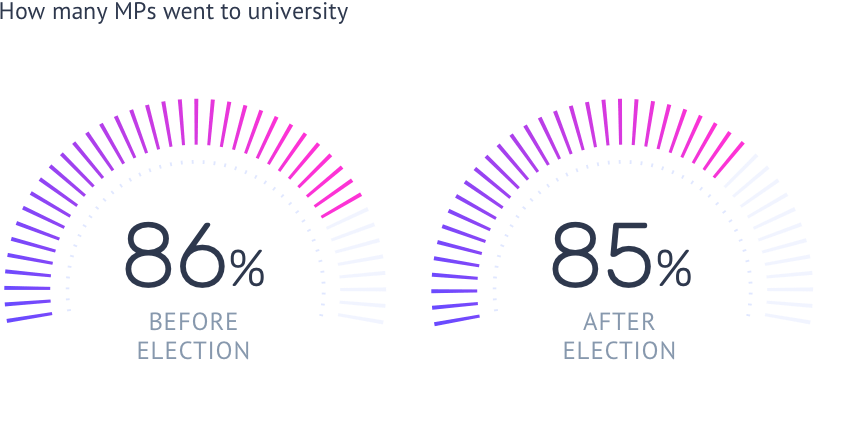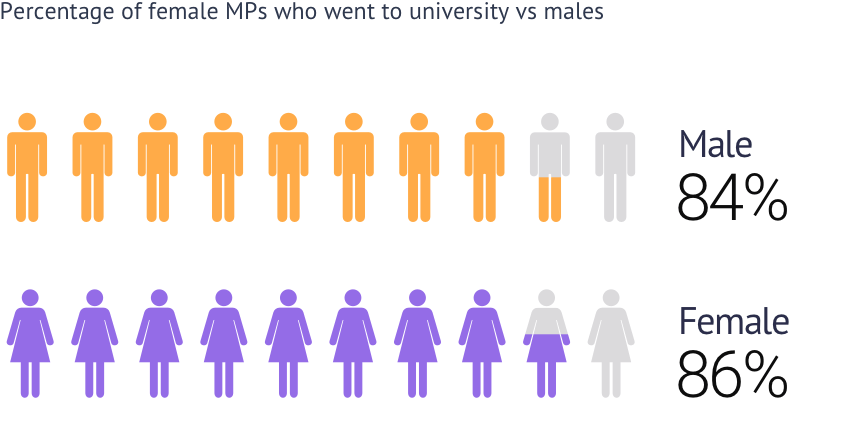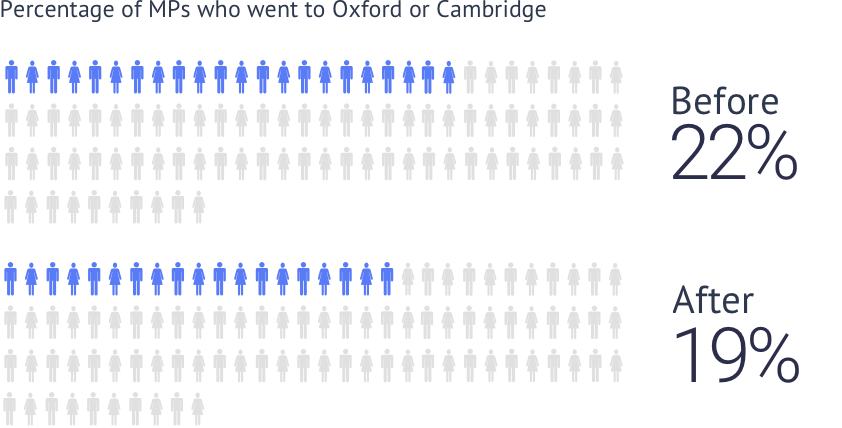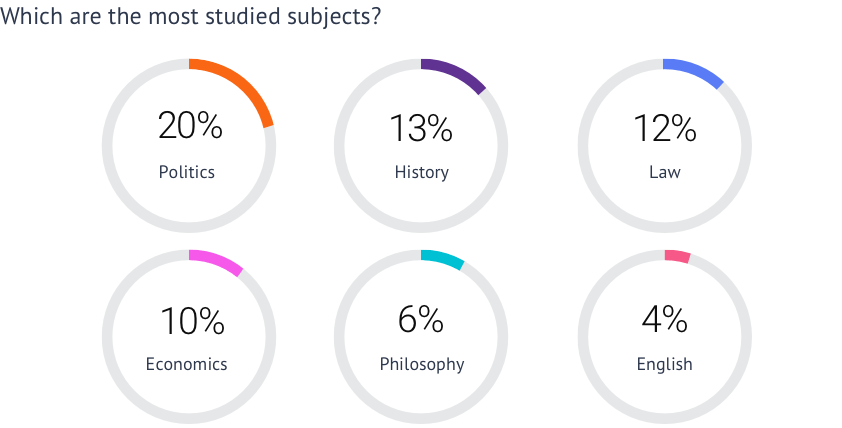The UK General Election on 12 December 2019 saw a landslide victory for the Conservative Party and a huge change in the makeup of the House of Commons. We’ve taken a look at the undergraduate education of the new government, and how it compares to the one that came before.
How many MPs have attended university?
Our findings show that the overall number of MPs who have attended university has gone down slightly following the election. Before the election, 86% of MPs had gone to university, but this has now dropped to 85%. There are now 99 MPs who have not had a university education, showing that you don’t have to be a graduate to gain a place in the House of Commons.

Did more male or female MPs go to university?
Our study has also found that a smaller percentage of male MPs have been to university compared to female MPs. The gap between the two has narrowed however, with the percentage of female MPs who have attended university dropping from 90% to 86%, and the proportion of male MPs staying at 84%.

How many MPs attended Oxbridge?
Interestingly, although the number of MPs who have gone to university has dropped by just 1%, those who attended Oxbridge has dropped by 3%, from 22% to 19%. This shows that perhaps the supposed influence of Oxford and Cambridge graduates on UK politics is beginning to slip.

Which party has the most Oxbridge graduates?
Of the MPs that went to Oxbridge, it’s maybe no shock to find that 70% represent the Conservative Party, up 12% from the previous government. Labour MPs make up the vast majority of the difference, representing 28%, with the other 2% coming from the Liberal Democrats. Although they now boast 48 seats, not one SNP MP attended either Oxford or Cambridge.
Which universities are most popular with MPs?
When it comes to the most popular universities that MPs attend, the top 4 remains unchanged following the election. Oxford, Cambridge, London School of Economics and Manchester still lead the way for providing the most MPs. Further down the list, Glasgow, Edinburgh and Durham keep their places in the top 10, but there are now places for Birmingham and Exeter, with Aberystwyth dropping out.
What subjects do MPs study?
If you dream of becoming an MP, but don’t know which subject to study to get there, then these findings may shed some light. The most popular degrees studied by MPs before and after the election have changed slightly, with the top six remaining politics, law, economics, history and philosophy. Only the order has changed, with history now the 2nd most popular subject after politics, and law and economics slipping one place each.
